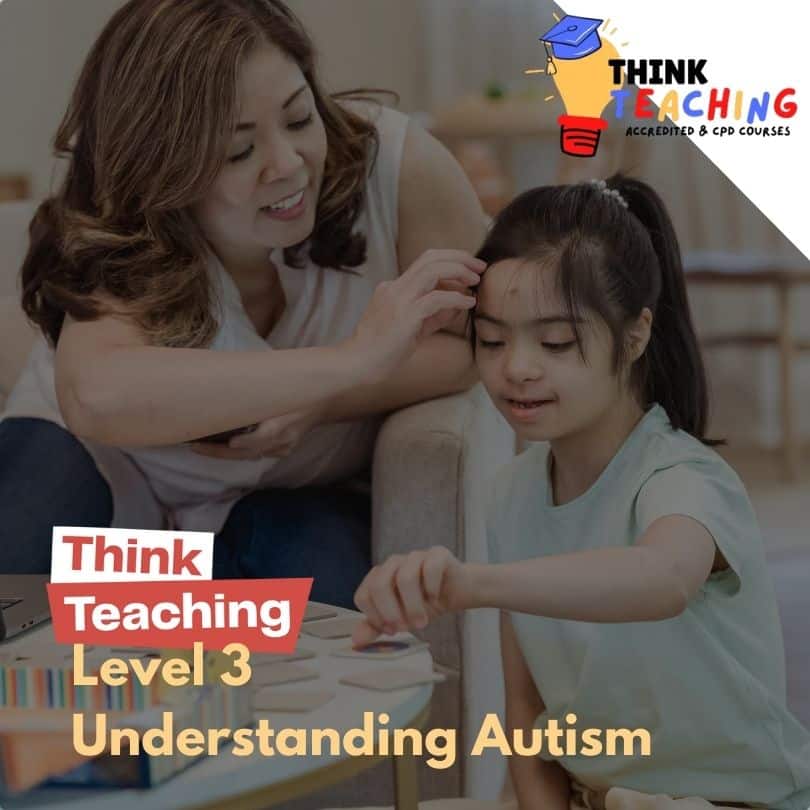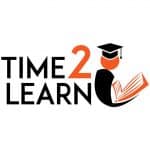

Learners should be aged 16 and over, but otherwise, there are no specific entry requirements for this programme.
Learners must have access to a computer, laptop, tablet, or smartphone. (Computer/laptop recommended).
Learners should have a Level 2 equivalent in English.

Autism in Context
Positive Behavioural Support for Individuals with Autism
Understand Support and Management of Transitions for Individuals with Autism
Therapeutic Interventions and Support Available for Individuals with Autism and Co-Occurring Conditions
Communication and Social Interaction with Individuals with Autism
Safeguarding and Resilience in Autism

This qualification is designed for learners who want to increase their knowledge and understanding of autism. Successful completion of this qualification will allow learners to develop in-depth knowledge and understanding of autism, which would support progression onto appropriate qualifications and into employment within the health, social care, and education sectors.
NCFE is a national Awarding Organisation as well as a registered educational charity and has a strong heritage in learning, going back over 150 years.
On completion of this course you will receive the NCFE CACHE Level 2 Certificate in Understanding Safeguard and Prevent (RQF Qualification Number: 603/2818/6). These qualifications are listed on the government regulated qualification website.
NCFE accredited qualifications contribute to the success of millions of learners at all levels, bringing them closer to fulfilling their personal goals. Last year alone, over 340,000 learners from over 2,000 colleges, schools and training organisations chose NCFE as the Awarding Organisation to help them move their careers forward.
NCFE is recognised as an Awarding Organisation by the qualification regulators for England, Wales and Northern Ireland. The regulators are the Office of the Qualifications and Examinations Regulator (Ofqual) in England, the Welsh Government in Wales and the Council for Curriculum, Examinations and Assessment (CCEA Regulation) in Northern Ireland.

Safeguarding is vitally important in any role where you’ll be routinely working with children, young people, or vulnerable adults. Having your Safeguarding and Prevent qualification is going to ensure that you know what to do when you’re faced with someone in need.
Since you’ll now be able to spot the signs of neglect, abuse, and radicalisation you can apply your knowledge in any role where you’re working with the aforementioned groups, it won’t just be an attractive part of your CV for prospective employers.
You’ll be able to employ what you’ve learned the most in an educational setting, regardless of the age range you’re going to be working with. Safeguarding and Prevent knowledge is seen as extremely important in the education sector, and will help you to get the position you want since you’ll be going into the application process able to show off your knowledge either on your CV or during your interview(s).
If you’re already working in an environment where safeguarding knowledge is important, such as a school or healthcare setting, the knowledge you gain in our Level 2 Safeguarding course will help you to do your job by making it easier for you to spot safeguarding issues and how you should deal with them.
Having this knowledge is going to be especially useful if your colleagues are lacking in training, meaning you can stand out and help to deal with the issues you or your team weren’t qualified for beforehand. You won’t just be improving yourself but helping to improve your organisation as a whole.
There are a number of supporting qualifications which might be useful when it comes to expanding on the knowledge you’ll gain throughout the course. You might look at taking a qualification in Childcare, Understanding Autism, or Equality and Diversity.
If you’re interested in using your safeguarding knowledge in a learning environment but don’t know where to start, you could look at taking a teaching assistant course and begin a new career in education.
If you’d like to learn more you should take a look at our helpful guide on how to become a teaching assistant. There are a wide range of roles you can take in education to make the most of your Safeguarding and Prevent knowledge from administration to teaching. If you’re looking to get started in a new career and want to see where our courses can take you then explore our career advice for school support jobs. You’ll find out what kind of job in schools that you’re qualified for and what else you’ll need to get into those positions!

We’ve helped hundreds of people start support jobs in schools, including; teaching assistants, classroom assistants, receptionists, catering staff, caretakers and admin staff.


























| Cookie | Duration | Description |
|---|---|---|
| cookielawinfo-checkbox-analytics | 11 months | This cookie is set by GDPR Cookie Consent plugin. The cookie is used to store the user consent for the cookies in the category "Analytics". |
| cookielawinfo-checkbox-functional | 11 months | The cookie is set by GDPR cookie consent to record the user consent for the cookies in the category "Functional". |
| cookielawinfo-checkbox-necessary | 11 months | This cookie is set by GDPR Cookie Consent plugin. The cookies is used to store the user consent for the cookies in the category "Necessary". |
| cookielawinfo-checkbox-others | 11 months | This cookie is set by GDPR Cookie Consent plugin. The cookie is used to store the user consent for the cookies in the category "Other. |
| cookielawinfo-checkbox-performance | 11 months | This cookie is set by GDPR Cookie Consent plugin. The cookie is used to store the user consent for the cookies in the category "Performance". |
| viewed_cookie_policy | 11 months | The cookie is set by the GDPR Cookie Consent plugin and is used to store whether or not user has consented to the use of cookies. It does not store any personal data. |